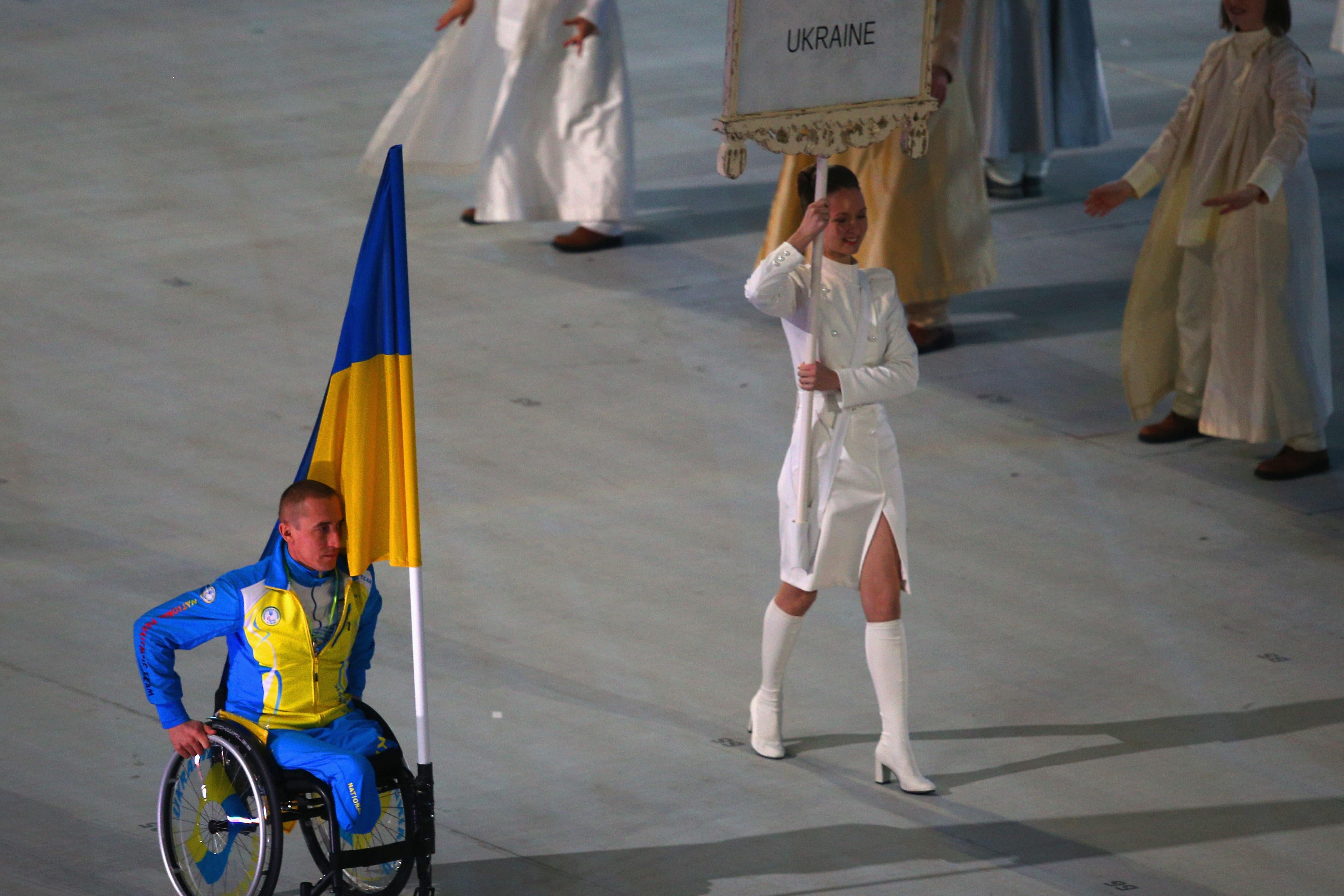The Sochi Winter Games were more politically tense than your average Olympics, though probably less than many were expecting, or hoping. But in the aftermath of Russia’s invasion of Crimea—just a few hundred miles up the Black Sea coast—has raised the stakes for the Paralympic Games, which kick off today.
Nobody’s completely boycotting the games, but a number of countries, including the United States, France, Norway, and Britain, have decided not to send official delegations to today’s opening ceremony. Ukraine is sending its athletes after strongly considering a boycott, but Valerii Sushkevych, president of the country’s Paralympic committee, said after a meeting with Vladimir Putin that he fears that “during the Paralympic Games we will see something which could not be rectified” take place in Ukraine, in which case the athletes will leave “at that very second.”
During the Olympics, the IOC denied a request by Ukrainian athletes to wear black armbands in honor of those killed during street protests in Kiev, and it will be interesting to see whether there are further political gestures from the team. Already today, the Ukrainian team made a statement by sending out only its flag-bearer, Nordic skier Mykhaylo Tkachenko, in the athletes’ parade at today’s opening ceremony, with the rest of the 23-member delegation staying in their rooms.
The Sochi Paralympics, the biggest ever held, are meant to highlight Russia’s progress in its treatment of its 13 million citizens with disabilities. Its record on this hasn’t always been so distinguished. In 1980, when Moscow hosted the Summer Olympics, the country simply declined to organize the Paralympics, with Soviet leader Leonid Brezhnev reportedly saying, “In our country, there are no disabled people.”
According to a Human Rights Watch report issued in September, in recent years “The Russian government has taken some high profile steps to improve accessibility, but when it comes to daily life—such as going to work or visiting the doctor—people with disabilities face an uphill battle.”
According to the report, Russian accessibility laws are now actually quite strong—and unlike the United States, it has signed and ratified the U.N. Convention on the Rights of Persons with Disabilities—but Russians with disabilities still face serious barriers related to infrastructure and discrimination.
The Russian media is giving heavy coverage to the games, which Russian athletes have performed quite well at in the past.
